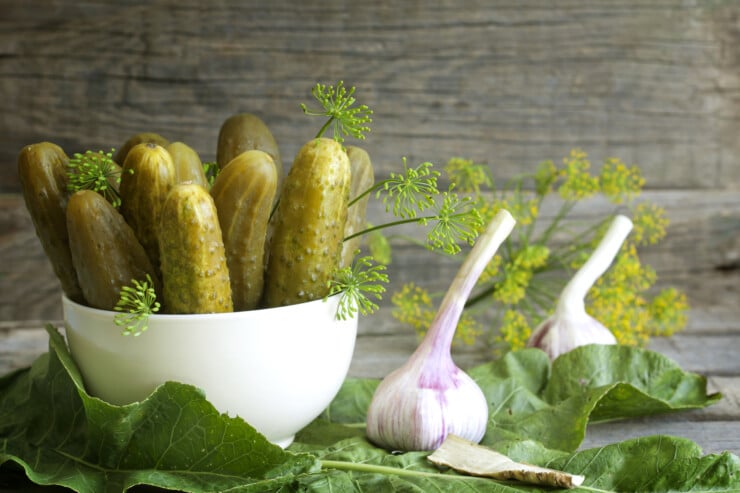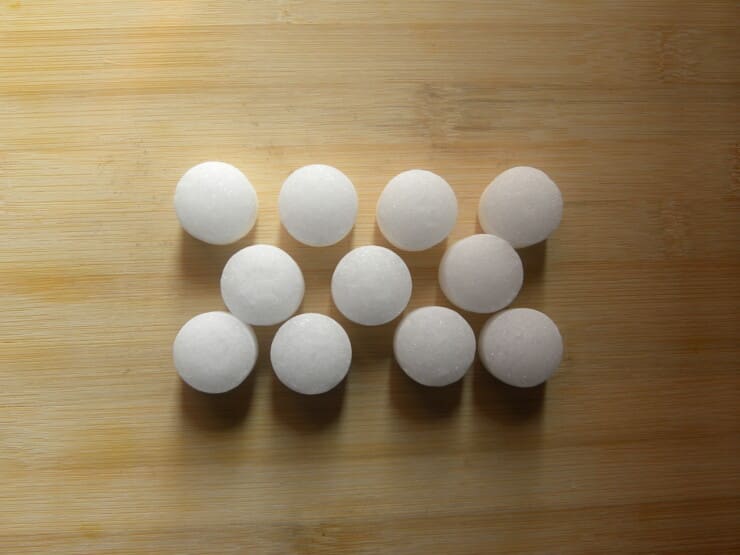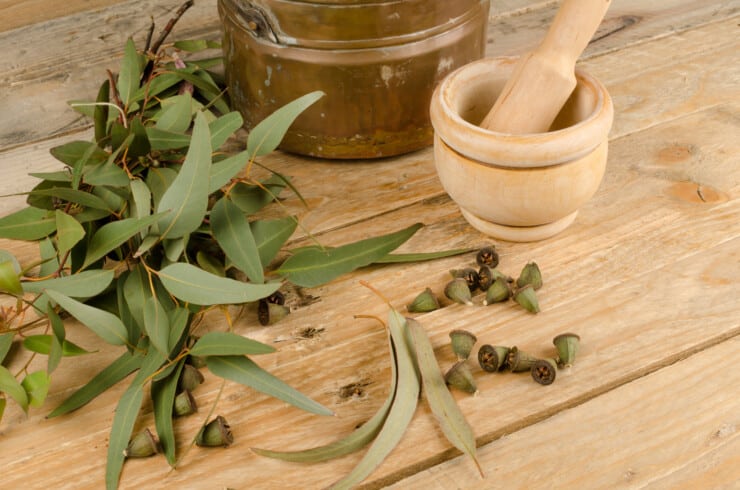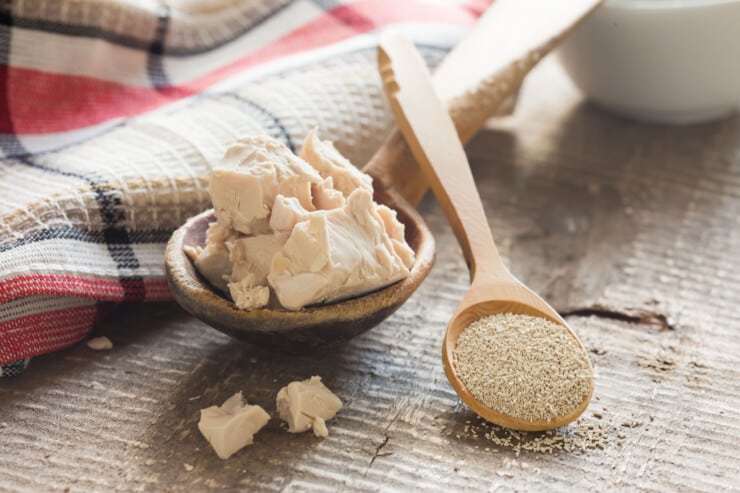Why Is There A Strange Tea Leaves Smell In My House?
A number of individuals have encountered the strange occurrence of smelling a distinct odor, similar to that of tea leaves, upon entering their houses.
In this article, we’ll dive deep into the possible reasons for that odd tea leaves smell in your home, so you can finally put an end to those nagging questions in the back of your mind.
Rest assured, by the end, you’ll be well-equipped to tackle any unexpected olfactory surprises head-on – because let’s face it, who doesn’t crave knowing all there is about their living space?
Investigating Common Household Odors

Have you ever wondered why your house smells like tea leaves?
Investigating common household odors can be an adventure in itself, as there are a multitude of potential odor sources.
Taking the time to identify and address these peculiar scents not only helps maintain a pleasant living environment but also satisfies that innate human curiosity.
One possible explanation for the tea leaves smell could be actual tea leaves or related products stored within your home – particularly if they are exposed to humidity or heat, which might amplify their aroma.
Alternatively, it’s worth considering other items with similar fragrances, such as potpourri or certain spices used for cooking.
In any case, pinpointing the source is essential before exploring appropriate smell solutions.
Once you’ve identified the origin of the mysterious scent, consider implementing various strategies to counteract it.
For example, storing aromatic items in sealed containers may help prevent them from permeating throughout your home.
Ventilation plays a crucial role too; opening windows and utilizing fans encourages air circulation and dilutes lingering odors over time.
By taking charge of your home’s atmosphere and addressing unwanted aromas head-on, you’ll feel empowered by your newfound mastery over this seemingly trivial aspect of daily life.
Uncovering Hidden Mold And Mildew Issues
As we continue our exploration of common household odors, it’s crucial to delve into a hidden issue that might be lurking in your home – mold and mildew.
These sneaky culprits can cause unpleasant smells and even trigger health issues for those with mold allergies.
Understanding the signs of their presence and taking steps toward mildew prevention will empower you on your quest to maintain a fresh-smelling and healthy living space.
Mold thrives in damp environments, so if you’ve experienced water leaks or high humidity levels in your house, there’s a chance that these fungal intruders have found their way inside.
A musty, earthy odor is often the first clue of their unwelcome existence.
By familiarizing yourself with common hiding spots like bathrooms, kitchens, basements, and air conditioning units, you’ll be better equipped to detect any problematic areas early on.
Keep an eye out for discolored walls or ceilings as well since they could signal water damage – a perfect breeding ground for mold and mildew.
To proactively combat this invisible enemy and protect both your nostrils and overall wellbeing from its effects, focus on reducing excess moisture throughout your home.
This includes fixing leaks promptly, ensuring proper ventilation in damp rooms like bathrooms or laundry spaces, using dehumidifiers where necessary, and regularly cleaning surfaces prone to collecting condensation.
Examining Your HVAC System
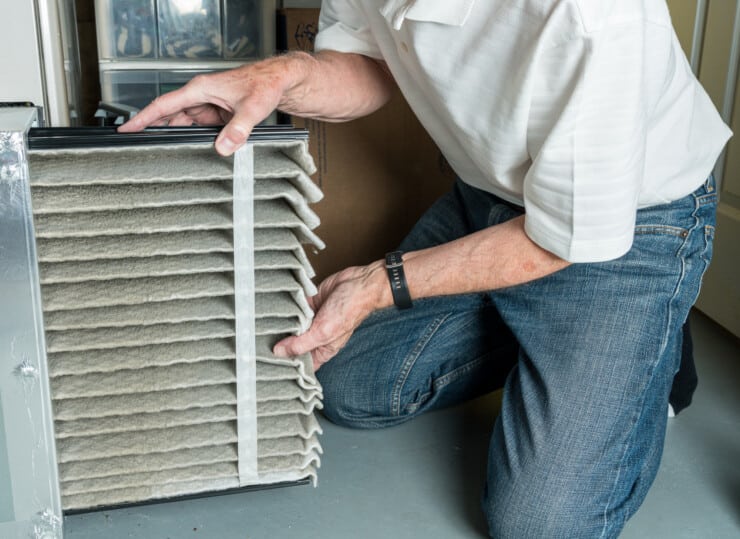
There’s something lurking in your house – an odd, tea leaves smell that just won’t go away.
You’ve checked every corner and can’t seem to find the source of this mysterious aroma.
But have you considered examining your HVAC system?
That’s right; sometimes these systems collect various odors from outdoor sources or even indoor activities, which may result in strange smells circulating throughout your home.
Here are four crucial steps to inspect your HVAC system:
- Check for mold: Mold growth in your ducts or around the air conditioning unit could be responsible for emitting a musty tea leaves-like scent.
- Air filter replacement: Dirty filters can trap particles that cause unpleasant odors, so make sure you’re regularly replacing them according to manufacturer guidelines.
- HVAC maintenance: Schedule regular professional tune-ups to ensure optimal efficiency and cleanliness of your heating and cooling units.
- Consider cleaning ductwork: Over time, dust, debris, and other contaminants accumulate within your ducts—cleaning them will help eliminate potential odor-causing agents.
With these steps in mind, begin by checking for any signs of mold growth in the areas surrounding your vents or air conditioner unit itself.
If there doesn’t appear to be any visible contamination, proceed with changing out the air filters as needed while scheduling routine HVAC maintenance appointments with qualified professionals who can assess and address any underlying issues contributing to lingering odors.
By following these suggestions and giving attention to the often-overlooked elements of our homes’ ventilation systems, we empower ourselves not only to identify but also eradicate those pesky unwanted smells like that curious tea leaves aroma wafting through the rooms.
Remember: proper care and diligence when it comes to maintaining our living spaces play a significant role in ensuring pleasant environments where we feel comfortable and at ease – all without being haunted by unexplained scents!
Identifying Potential Plumbing Problems
Have you ever thought that the strange tea leaves smell in your house might be related to plumbing issues?
Indeed, many homeowners overlook potential problems in their pipes and drains.
Let’s dive into some common plumbing problems that could cause such an odor.
| Plumbing Issue | Symptoms of Problem |
|---|---|
| Plumbing Leaks | Damp or wet spots on walls, floor, or ceiling; mold growth; water stains |
| Pipe Corrosion | Discolored water; low water pressure; visible rust on pipes |
As shown above, plumbing leaks and pipe corrosion are two significant concerns for any homeowner.
Is there a damp spot on your wall or a mysterious puddle forming near one of your appliances?
These signs indicate possible leakage within your home’s plumbing system.
On the other hand, discolored tap water and lowered water pressure can signal corroded pipes.
Both situations may contribute to undesirable odors in your living space as they create opportunities for bacteria growth and release impurities into your home’s air supply.
Don’t wait until it gets worse!
By recognizing these telltale signs and addressing them promptly, you’ll not only eliminate the strange tea leaves smell but also protect your investment by maintaining the integrity of your property’s infrastructure.
Exploring Natural Causes And Remedies
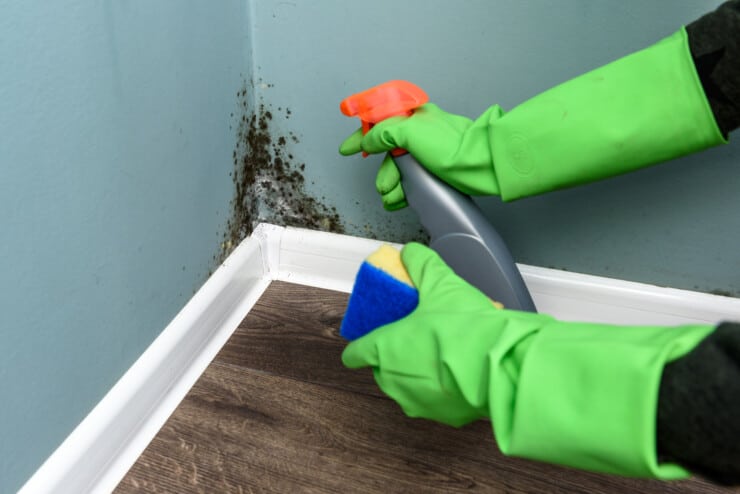
Like a mystery novel filled with twists and turns, the strange tea leaves smell in your house invites exploration into its origins.
To uncover this peculiar aroma’s secrets, we must first look at possible natural causes that could be wafting through your domain.
With each clue uncovered, you may find yourself one step closer to mastering the art of maintaining an aromatic sanctuary within your home.
Perhaps someone in your household brewed a strong pot of tea or spilled loose leaves without realizing it?
It’s also worth considering if there are any nearby plants emitting similar scents – for instance, certain herbs (like mint) and flowers (such as jasmine) can exude fragrances reminiscent of tea leaves when they’re growing or being handled.
Moreover, check for damp spots around the house where mold growth may have taken hold; these fungi emit earthy odors that could easily be mistaken for our elusive scent.
To truly conquer lingering smells and restore balance to your abode, consider implementing aromatic solutions to refresh the environment.
Open windows to let fresh air circulate throughout the space, ensuring stale air is replaced with invigorating outdoor breezes.
Try placing bowls of vinegar near potential odor sources; this inconspicuous hero is known for its ability to neutralize unpleasant scents like magic.
Another thing you can do is to embrace nature’s gifts by bringing plants indoors that purify air while adding visually appealing elements – ferns and spider plants are popular choices among interior design enthusiasts who seek both form and function in their greenery selections.
Frequently Asked Questions
Can Certain Types Of Furniture Or Textiles Contribute To A Tea Leaves Smell In My Home?
Furniture materials and textile odors can significantly contribute to a tea leaves smell in your home.
It’s not uncommon for certain wood finishes, upholstery fabrics, or even carpeting to emit subtle yet distinct scents that may evoke the aroma of tea leaves.
These smells can be particularly noticeable when you introduce new furniture pieces or textiles into your living space.
Is It Possible That The Odor Is Coming From A Neighbor’s Home Or A Nearby Source Outside Of My House?
It’s entirely possible that the mysterious tea leaves scent wafting through your home is, in fact, originating from a neighbor’s house or an outdoor source nearby.
Neighborhood odors can easily infiltrate our personal spaces, leaving us puzzled and searching for answers within our own walls.
While we relish the satisfaction of solving these aromatic enigmas and strive to achieve mastery over our sensory environments, sometimes it pays to remember that not every olfactory mystery lies solely within our domain.
Can The Tea Leaves Smell Be A Result Of A Specific Type Of Cleaning Product Or Air Freshener Being Used In My Home?
It’s certainly possible that the tea leaves aroma wafting through your home could be a result of using specific cleaning products or air fresheners, such as tea scented candles.
These candles not only provide a pleasant fragrance but also offer aromatherapy benefits, creating a calming and soothing atmosphere for you to unwind in.
Are There Any Health Risks Associated With Consistently Smelling A Tea Leaves-Like Odor In My House?
As the saying goes, ‘better safe than sorry,’ so it’s wise to consider any potential health risks associated with consistently smelling a tea leaves-like odor in your home.
While tea leaves themselves are generally non-toxic and even boast some health benefits when consumed as a beverage, inhaling an unknown scent that reminds you of them could indicate the presence of other substances or chemicals lingering in your environment.
To put your mind at ease and satisfy that subconscious desire for mastery over this puzzling situation, take steps toward odor elimination by first identifying and addressing the source of the smell.
How Can I Prevent The Tea Leaves Smell From Returning After Identifying And Addressing The Potential Cause?
To prevent the recurrence of that pesky tea leaves smell, it’s crucial to identify and address all potential odor sources in and around your home.
Start by thoroughly cleaning and ventilating each room, focusing on areas where smells may linger, such as carpets, curtains, or furniture.
Keep an eye out for mold or mildew growth, plumbing issues, or other hidden culprits contributing to the aroma.
Don’t forget about external factors like nearby plants emitting a similar scent or even possible pest infestations!
Final Thoughts
It’s essential for us to identify the source of that mysterious tea leaves smell in our homes.
Whether it’s coming from furniture, textiles, cleaning products or external sources, we must be vigilant and address any potential causes.
By doing so, not only will we safeguard our health but also ensure a pleasant living environment free from bothersome odors.
Let’s work together to keep our homes smelling fresh and welcoming!



